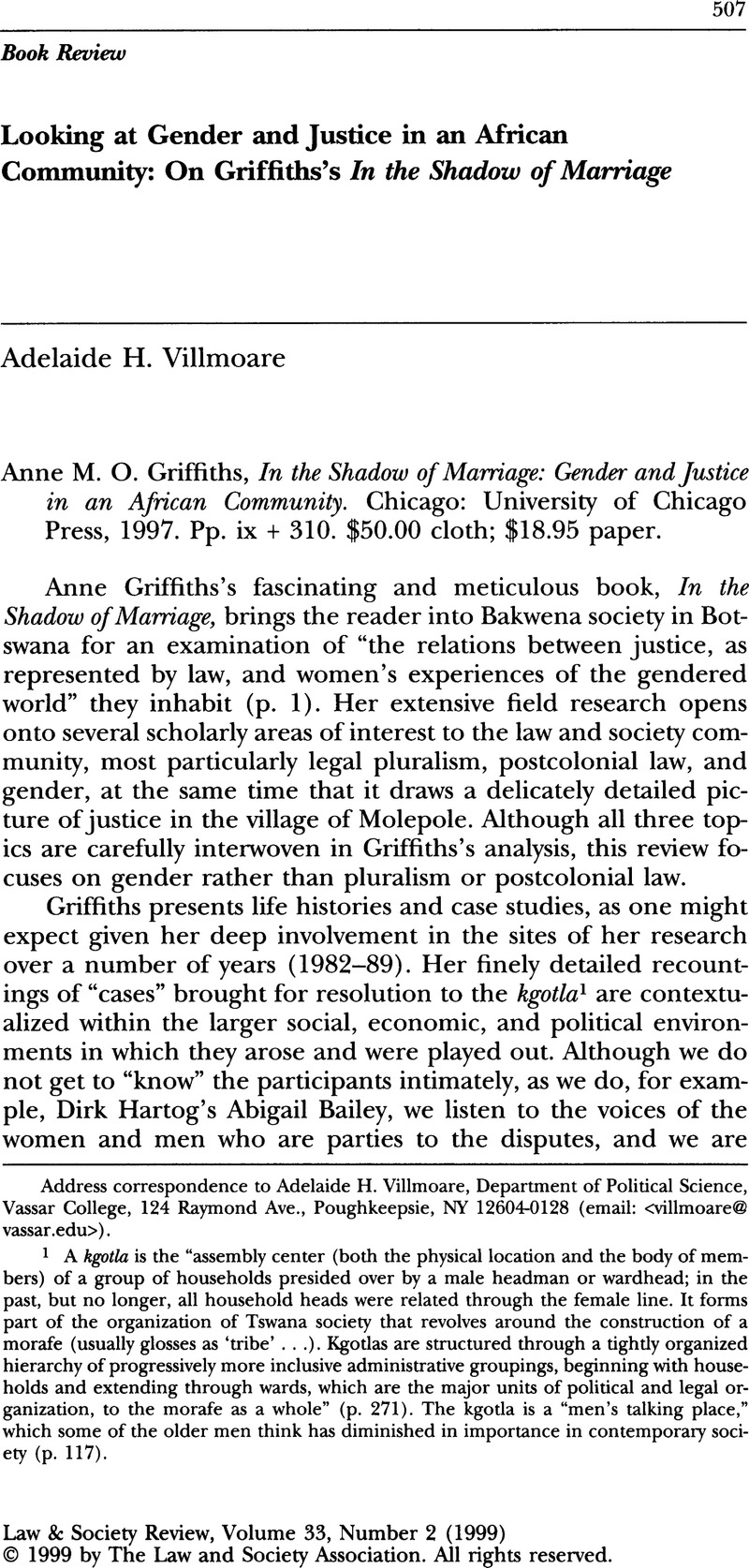No CrossRef data available.
Article contents
Looking at Gender and Justice in an African Community: On Griffiths's In the Shadow of Marriage - Griffiths Anne M. O., In the Shadow of Marriage: Gender and Justice in an African Community. Chicago: University of Chicago Press, 1997. Pp. ix + 310. $50.00 cloth; $18.95 paper.
Review products
Published online by Cambridge University Press: 02 April 2024
Abstract

- Type
- Book Review
- Information
- Copyright
- Copyright © 1999 by The Law and Society Association.
References
1 A kgotla is the “assembly center (both the physical location and the body of members) of a group of households presided over by a male headman or wardhead; in the past, but no longer, all household heads were related through the female line. It forms part of the organization of Tswana society that revolves around the construction of a morafe (usually glosses as ‘tribe’ …). Kgotlas are structured through a tightly organized hierarchy of progressively more inclusive administrative groupings, beginning with households and extending through wards, which are the major units of political and legal organization, to the morafe as a whole” (p. 271). The kgotla is a “men's talking place,” which some of the older men think has diminished in importance in contemporary society (p. 117).
2 Griffiths writes: “Women … can and do go straight to the magistrate's court for a number of reasons. Some do so because they consider that they will not receive a fair hearing in the kgotla due to the man's status and local connections … On the other hand a desire to circumvent nepotism is not the only reason why women go to the court. There may be pragmatic reasons such as avoiding the kind of delay that ensues in the kgotla because proceedings cannot take place until all the relevant family members are present … Or women may simply wish to deal with the matter themselves, free from intervention of family or kin” (pp. 113-114).
3 If the woman has several children, it is difficult for her to make any legal claims on a man.




